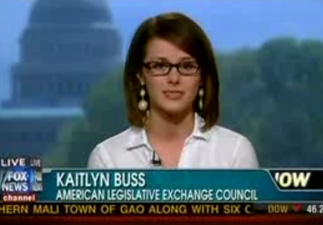| Home | Blog | Ask This | Showcase | Commentary | Comments | About Us | Contributors | Contact Us |

Tough questions about ALEC -- from ALEC itselfASK THIS | May 135, 2012Memo to ALEC members on how to dodge pointed inquiries into the group's mechanisms exposes its vulnerability to accusations that it is a lobbying arm for corporate interests. In preparing a memo aimed to help its members dodge tough questions, the controversial American Legislative Exchange Council (ALEC) unwittingly provided an excellent script for any reporter covering the group. Many of the questions, which the group said had been asked of them at one time or another by either reporters or legislative committees, revolve around how much direct corporate control there is over the organization, which turns model bills written by corporate lobbyists into state laws. Among the questions:
ALEC denies that the memo, which apparently dates back to last year, is still operative. But it's full of the same kind of non-denial denials we've been hearing a lot lately -- in particular ever since the February shooting of Florida teenager Trayvon Martin, whose death initially seemed unprosecutable do to the kind of "Stand Your Ground" law that ALEC has succesfully pushed for in many states. How often have you interviewed someone who seemed more interested in changing the subject than in actually answering your questions? That's exactly what ALEC instructed its members to do. "The following information is designed to help you navigate away from those tough questions and get back to talking about policy," says the memo. "If you are asked any of these questions, acceptable responses are provided, but please then direct the conversation back to the policy to which you want to discuss."
|




